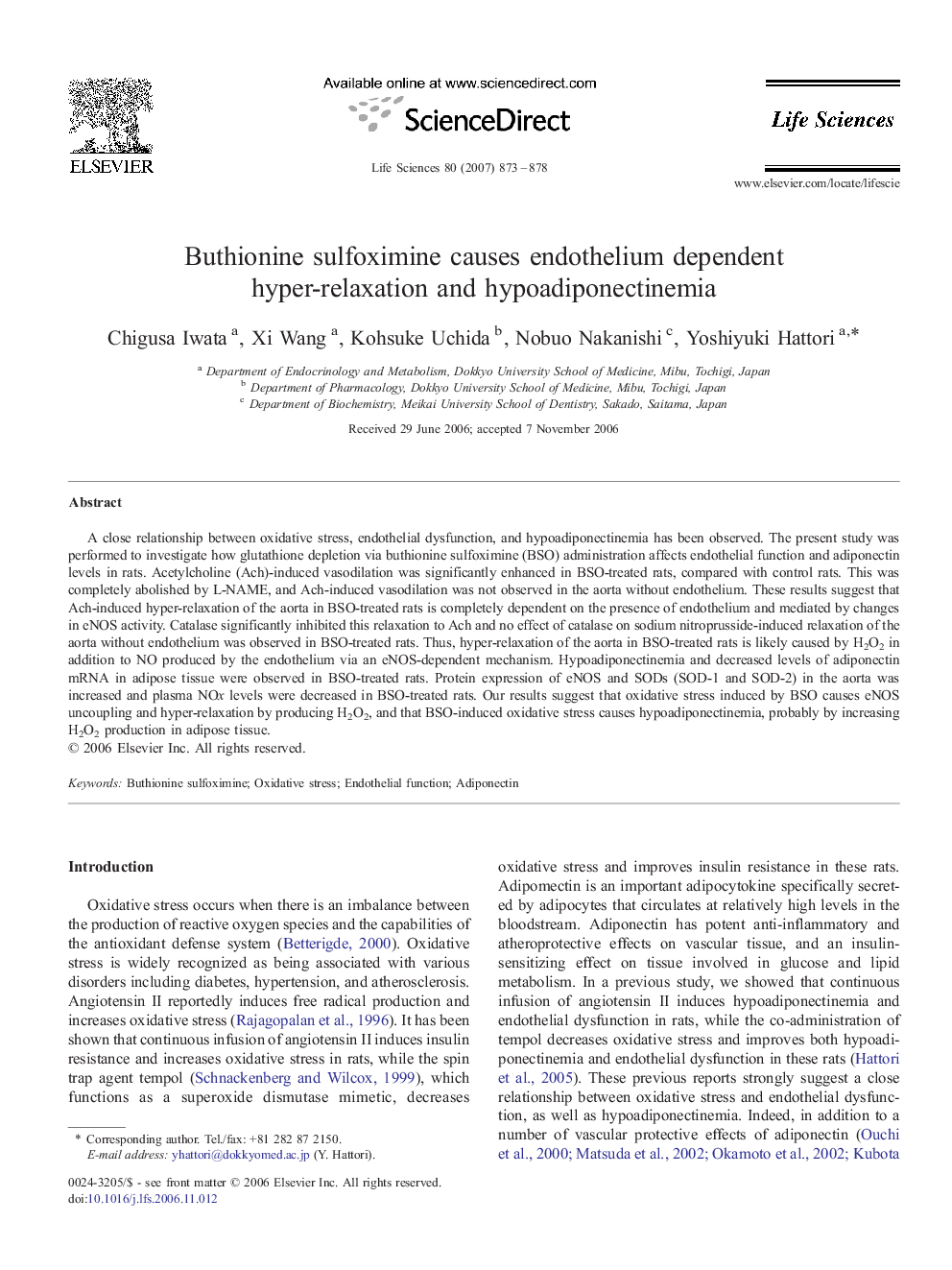| Article ID | Journal | Published Year | Pages | File Type |
|---|---|---|---|---|
| 2553924 | Life Sciences | 2007 | 6 Pages |
A close relationship between oxidative stress, endothelial dysfunction, and hypoadiponectinemia has been observed. The present study was performed to investigate how glutathione depletion via buthionine sulfoximine (BSO) administration affects endothelial function and adiponectin levels in rats. Acetylcholine (Ach)-induced vasodilation was significantly enhanced in BSO-treated rats, compared with control rats. This was completely abolished by L-NAME, and Ach-induced vasodilation was not observed in the aorta without endothelium. These results suggest that Ach-induced hyper-relaxation of the aorta in BSO-treated rats is completely dependent on the presence of endothelium and mediated by changes in eNOS activity. Catalase significantly inhibited this relaxation to Ach and no effect of catalase on sodium nitroprusside-induced relaxation of the aorta without endothelium was observed in BSO-treated rats. Thus, hyper-relaxation of the aorta in BSO-treated rats is likely caused by H2O2 in addition to NO produced by the endothelium via an eNOS-dependent mechanism. Hypoadiponectinemia and decreased levels of adiponectin mRNA in adipose tissue were observed in BSO-treated rats. Protein expression of eNOS and SODs (SOD-1 and SOD-2) in the aorta was increased and plasma NOx levels were decreased in BSO-treated rats. Our results suggest that oxidative stress induced by BSO causes eNOS uncoupling and hyper-relaxation by producing H2O2, and that BSO-induced oxidative stress causes hypoadiponectinemia, probably by increasing H2O2 production in adipose tissue.
